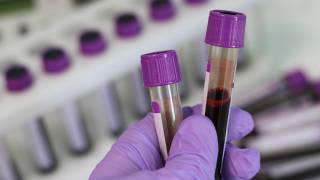Rare Hepatitis E Case Reported in Hong Kong

The world's first instance of a human being infected with rat hepatitis E virus was reported by the University of Hong Kong (HKU) on September 27, 2018.
The patient was placed on immunosuppressant drugs and showed persistently abnormal liver function tests results. This indicated problems with his liver graft.
Further tests showed the patient was carrying a species of hepatitis virus that until then was known to be present only in animals, such as rats.
The test results were “highly divergent” from the hepatitis E strain that affects humans, the HKU researchers said.
Before this case, there had been no previous evidence that rat hepatitis E, one of the variants of the virus that affects mammals, could be transmitted to humans.
Hepatitis E is a liver disease caused by infection with a virus known as the hepatitis E virus (HEV), says the World Health Organization (WHO).
Traditionally, the HEV is transmitted by the fecal-oral route, principally via contaminated water. And, HEV belongs to the Hepeviridae, a diverse family of viruses infecting mammals, birds, and fish.
Cases of HEV typically present in one of two ways, either as large outbreaks and sporadic cases in areas where HEV is endemic (genotype 1) in Asia and Africa, (genotype 2) in Mexico and West Africa and (genotype 4) in Taiwan and China or as isolated cases in developed countries (genotype 3), reports the WHO.
This hepatitis E case emerged when a patient had undergone a liver transplant on May 14th at HKU’s teaching hospital Queen Mary, reports SCMP news.
“We postulate that contamination of food by infected rat droppings in the food supply is possible,” HKU researchers said. “Although they noted that the route of transmission of the virus, in this case, remained unclear.”
During the summer of 2018, Hong Kong faced a rampant rodent problem, with control officers reporting double-digit growth in demand for their services over the past few months, reported SCMP.
Every year, the hepatitis E virus infects about 20 million people worldwide, leading to an estimated 3.3 million symptomatic cases, says the WHO.
Most people with Hepatitis E recover completely. During HEV outbreaks, the overall case-fatality rate is about 1 percent.
However, for pregnant women, Hepatitis E can be a serious illness with mortality reaching 10–30 percent in their third trimester of pregnancy.
The WHO estimates that hepatitis E caused approximately 44,000 deaths in 2015.
The only hepatitis E vaccine is available from China.
Xiamen Innovax Biotech CO., LTD. launched the world’s first Hepatitis E Vaccine, Hecolin® in China in October 2012. Hecolin is considered a promising vaccine which has shown a high degree of efficacy in China.
But, as of May 2018, there was not a US Centers for Disease Control and Prevention (CDC) approved hepatitis E vaccine.
Details of the University of Hong Kong HEV study, regarding rodent transmission, led by Professor Yuen Kwok-Yung and Dr. Siddharth Sridhar from the department of microbiology, will be published in the medical journal Emerging Infectious Diseases in December 2018.
Our Trust Standards: Medical Advisory Committee

























